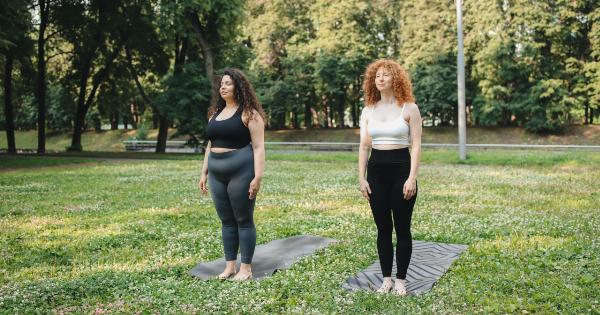Moving in with a partner can be an exciting and wonderful step in any relationship. It can also be a nerve-wracking and complicated decision.
Before you start packing boxes and searching for the perfect place to call home, there are some important factors to consider. Here are 10 questions to ask yourself and your partner to determine if you are truly ready to move in together:.
Question #1: Do you talk openly about your feelings and concerns?
Communication is key in any relationship, and it’s especially important when it comes to living together. Before making the move, it’s essential to have open and honest conversations about your expectations, concerns, and boundaries.
Are you on the same page about finances, housekeeping, and personal time? Do you have the skills to work through conflicts and challenges as a team? If you’re not currently communicating effectively, it may be worth addressing that before combining households.
Question #2: Have you spent significant time together already?
Moving in together is a big step, and it’s important to have a solid foundation before taking that leap.
Ideally, you and your partner have already spent a significant amount of time together, whether that’s through sleepovers, weekend trips, or extended vacations. Living together can be a very different experience than dating, and it’s worth considering how you handle being together in close quarters for extended periods of time.
Question #3: Are you financially compatible?
Moving in together often involves sharing finances, whether that’s splitting the rent and utilities or grocery shopping together. Before doing so, it’s important to make sure you’re financially compatible.
Do you have similar financial goals and habits? Are you both comfortable with the idea of sharing expenses? Will you be able to manage bills and expenses together without conflicts? Be sure to have a conversation about finances early on to ensure you’re on the same page.
Question #4: Are you emotionally ready for this step?
Moving in with a partner can be a big emotional shift, and it’s important to make sure you’re both ready for it.
Are you comfortable with being vulnerable and sharing space with each other? Are you emotionally invested in the relationship and see a future together? If there are any lingering doubts or fears, it may be worth taking some time to work through those before making the move.
Question #5: Do you have similar lifestyles?
Living together means sharing not only physical space but also your daily routines. Before moving in together, it’s important to consider whether you have similar lifestyles.
Do you have similar sleeping patterns and work schedules? Are you both introverted or extroverted? Do you enjoy similar activities and hobbies? While it’s not necessary to have everything in common, having some shared interests and routines can make living together more enjoyable and harmonious.
Question #6: Have you discussed the division of household chores?
Another important aspect of living together is how you will handle household chores and responsibilities. Before moving in, it’s important to have a conversation about who will do what and how you will divide tasks.
Will you assign specific chores to each person, or alternate responsibilities each week? Will you hire a cleaning service or split the cost of one? Having a plan in place can help avoid conflicts and resentment down the line.
Question #7: What are your long-term goals?
Before moving in together, it’s important to consider your long-term goals as a couple.
Do you both see a future together, or are you still figuring out if you’re a good match? Are you both on the same page about marriage and children, or do you have different visions for your future? While it’s not a requirement to have all the answers, having open and honest conversations about your goals and aspirations can help you make an informed decision about living together.
Question #8: Have you met each other’s families and friends?
Moving in together can also mean integrating your lives and social circles. Before doing so, it’s important to have met each other’s families and friends and have a sense of how they feel about your relationship.
While you don’t need everyone’s approval or support, it can be helpful to know if there are any potential conflicts or issues to address before living together.
Question #9: Are you comfortable with the level of commitment?
Moving in together is a big step, and it’s important to make sure you’re both comfortable and committed to the relationship.
Are you both on the same page about exclusivity and monogamy? Are you both comfortable talking about your thoughts and feelings about the relationship? If there are any unanswered questions or doubts, it may be worth addressing those before moving in together.
Question #10: Have you weighed the pros and cons?
Finally, before making the decision to move in together, it’s worth weighing the pros and cons. Living together can be an amazing opportunity to deepen your connection and take your relationship to the next level.
It can also be challenging and can bring up conflicts and difficulties you may not have anticipated. Make sure you’re considering all aspects of your decision and are ready to handle any challenges that may arise.
Conclusion
Moving in together can be a significant and exciting step in any relationship. It’s important to make sure you’ve considered all aspects of the decision and are both on the same page before doing so.
By asking yourself and your partner these ten questions, you can ensure that you’re truly ready and prepared to take on this next chapter of your relationship.






























